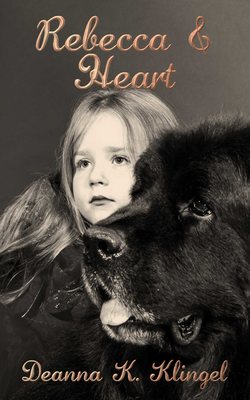Читать книгу Rebecca & Heart - Deanna K. Klingel - Страница 4
На сайте Литреса книга снята с продажи.
Introduction What’s Real and what’s Not…
ОглавлениеDear Young Readers,
The tale of Rebecca & Heart is fiction. This means the story is a creation of the author’s imagination. In fiction we can enjoy amazing things like an elephant who flies, a spider who writes messages, a lion that leads an army, or a fly on the wall who can live a very long time.
There are incidents in this story that are not creations of my imagination, they actually happened. These are called historical elements.
World War II London is written as it is depicted in historical accounts and photographs. The evacuation of the children to keep them safe from the bombing of London, and the distribution of gas masks and buttons did take place. This piece of the story is true and told accurately. You can research and discover photographs of London’s children standing in line at the train depot. The Blitz was the name news reporters used to describe the heavy bombing over Britain in 1940 and 1941 during World War II.
Guy Fawkes Day in England is a festival with fireworks, bonfires, and picnics. In England’s history it dates back to 1605 when a plot to blow up Parliament, of which Guy Fawkes was an initiator, was foiled. It’s commemorated on November 5th. You can research it and learn more about it, and see what the masks look like. Maybe you’d like to make one and have a party!
Until 1943, autism didn’t have a name. Children with autistic behaviors weren’t understood; they were considered “odd.” This often resulted in neglect, maltreatment, and exclusion. In 1943, autism was named and researched by Dr. Leo Kanner of Johns Hopkins University, in Baltimore, Maryland. Even though the causes of autism still aren’t known, treatment and better understanding have been available since the 1960s, allowing autistic children to function, be educated, and grow in their communities with more understanding and compassion. The number of cases diagnosed increases annually, though it isn’t known why.
Autism today affects one in 68 children. That means you are likely to meet someone like Rebecca during your school years. I hope knowing Rebecca’s story will help you understand better, and enable you to love that person; stand up for him as a friend; take time to discover her unique gifts, and help them feel accepted while respecting their space and needs. That is what friends do, isn’t it? Perhaps the viewpoint of the fly on the wall and his unique understanding will help you do this better.
Sincerely,
Deanna K. Klingel
